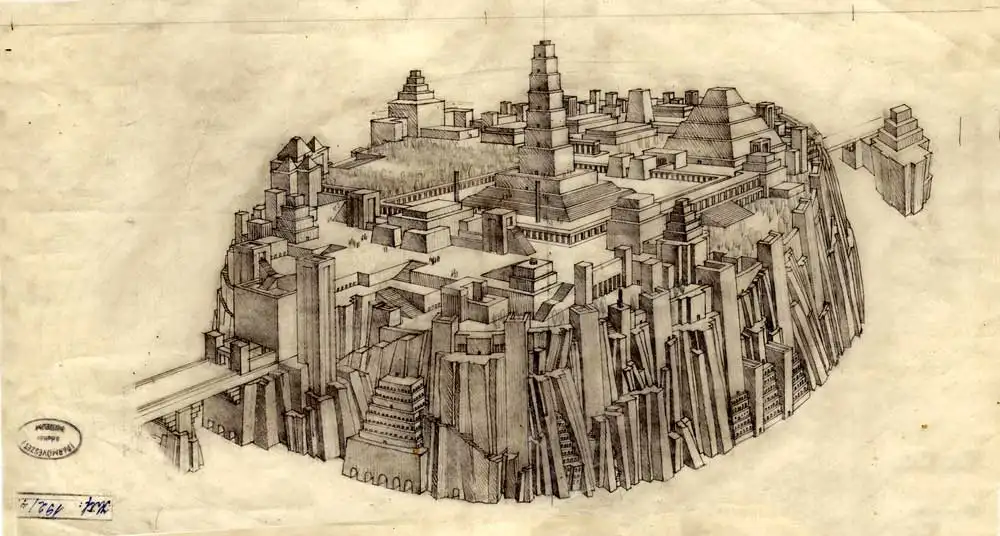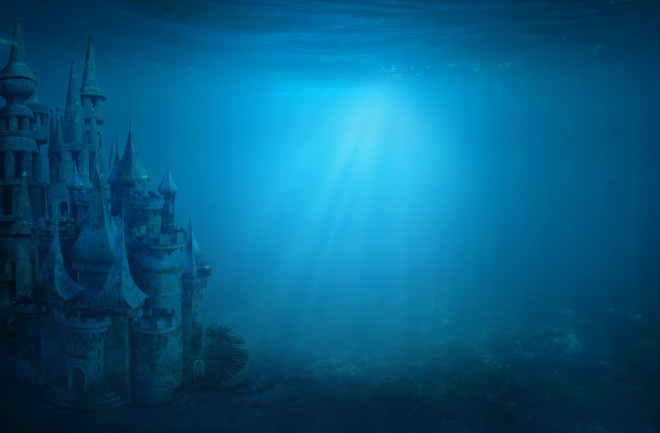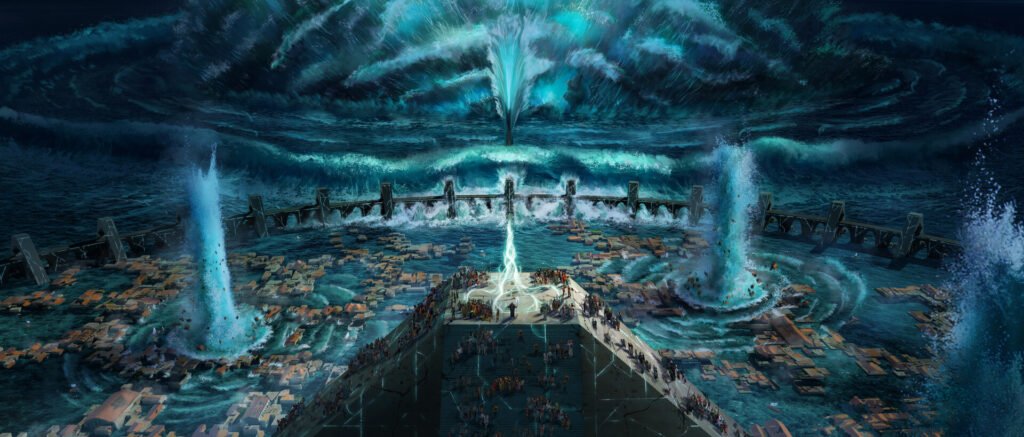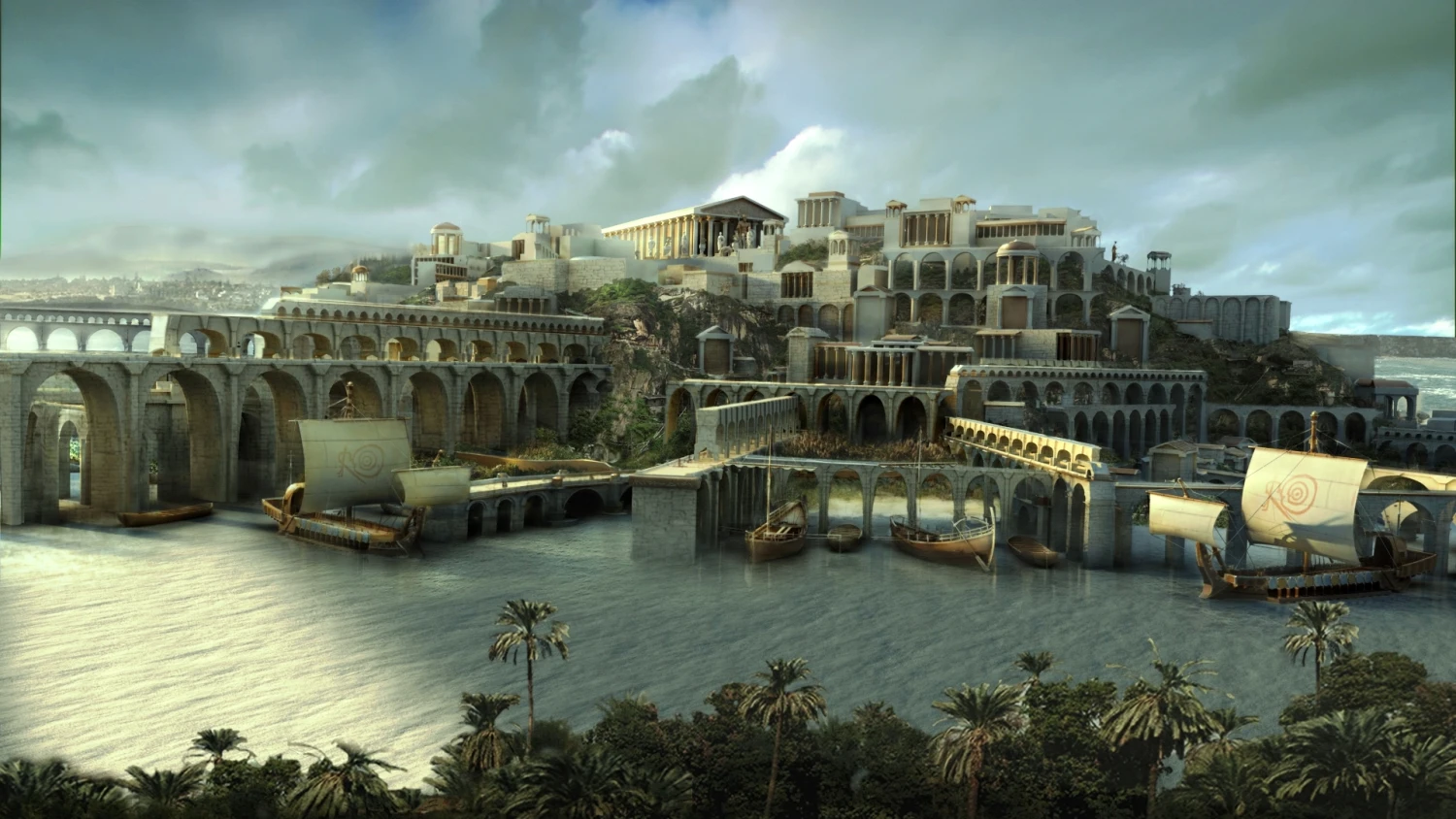News about the upcoming Atlantis movie is slow, and one question that still remains at the forefront (at least for us) is: What kind of Atlantis will Trevorrow bring to the silver screen?
With Trevorrow’s previous directorial successes, such as the Jurassic World franchise, and his passion for storytelling and visual effects, we’re eagerly anticipating his unique vision for this mythical city and curious to see just how he will visually bring it to life.
Today, let’s delve into the possibilities and speculate on the type of Atlantis we can expect to see from the talented filmmaker.
A Visual Spectacle
Given Colin Trevorrow’s skill in creating visually stunning cinematic experiences, it is highly likely that his portrayal of Atlantis will be a breathtaking visual spectacle. From the lush landscapes to the grand architecture, we can anticipate a vibrant and awe-inspiring rendition of this legendary city. With advancements in CGI and cinematography, Trevorrow will have the tools to bring Atlantis to life in all its splendor, immersing the audience in a world of wonder and beauty.
According to the accounts of Plato, who is credited with introducing the story of Atlantis, the city was said to be a magnificent and advanced civilization. Plato described Atlantis as a large island with concentric rings of water and land, adorned with beautiful palaces, temples, and canals.

Some theories suggest that Atlantis was a technologically advanced city with sophisticated infrastructure and architecture. It is often portrayed as a utopian society, characterized by grand structures, advanced engineering, and artistic beauty. The city is often imagined with monumental buildings, luxurious gardens, and elaborate water features.
Some portrayals depict Atlantis as an underwater city, with gleaming structures made of crystal or luminescent materials. These underwater depictions often feature a vibrant marine life surrounding the city, with intricate underwater landscapes and captivating visuals. On the other hand, above-ground depictions of Atlantis present it as a majestic city rising from the sea, with towering spires and majestic architecture.
While the mythological Atlantis is often associated with a sunken city beneath the sea, there are also depictions of Atlantis as an above-ground civilization. The underwater Atlantis depictions typically showcase a magnificent city nestled beneath the ocean depths. These portrayals emphasize the mystical allure of an ancient civilization hidden away from the world. The underwater environment often features vibrant coral reefs, aquatic creatures, and a mesmerizing play of light and shadow. On the other hand, above-ground Atlantis depictions present the city as a majestic metropolis rising above the surface, often situated on an island or a higher landmass. This version highlights the architectural grandeur and advanced civilization thriving in plain sight.
Underwater Atlantis depictions often incorporate a color palette dominated by shades of blue and green, with shimmering light filtering through the water. The architecture tends to have a fluid and organic design, resembling underwater structures like coral formations or flowing structures inspired by marine life. In contrast, above-ground Atlantis depictions showcase a blend of classical and futuristic architecture, characterized by towering structures, intricate detailing, and a harmonious balance between nature and civilization. The above-ground depiction allows for a wider range of architectural styles and embellishments.

In underwater versions, protagonists often venture into the depths using diving equipment or specialized technology to uncover the mysteries hidden beneath the waves. This exploration is associated with a sense of danger and awe-inspiring encounters with sea creatures and natural wonders. Conversely, above-ground depictions offer more accessible exploration, with characters navigating through the city’s streets, palaces, and temples, uncovering secrets and interacting with the Atlantean population directly.
In Colin Trevorrow’s upcoming movie, it remains to be seen which depiction of the city he will embrace. Whether he chooses the underwater or above-ground version, or perhaps even a fusion of both, it is certain that his creative vision will offer a fresh and captivating interpretation of Atlantis, adding new layers to its mythology and engaging audiences in an immersive cinematic experience.
A Nuanced Exploration of Mythology
Trevorrow has shown a knack for weaving mythology and fantastical elements into his films, as seen in his work on Jurassic World. It is safe to assume that he will delve deep into the mythos surrounding Atlantis, drawing inspiration from various ancient tales and legends. We can expect a nuanced exploration of the Atlantean civilization, their customs, beliefs, and perhaps even the factors that led to their downfall. Trevorrow’s attention to detail and dedication to storytelling will likely ensure a rich and compelling narrative that resonates with audiences.
The film has the potential to delve into larger themes and universal human narratives. It can offer a thought-provoking reflection on topics such as human ambition, the rise and fall of civilizations, the consequences of hubris, and the allure of lost worlds. Hopefully Colin will allow the audience to delve beyond the surface-level fantastical elements and seek deeper meaning, and invites us to contemplate the underlying symbolism and metaphorical significance that myths often carry. Through the lens of Atlantis, the film can explore themes of human nature, societal ideals, the pursuit of knowledge, and the eternal search for a utopia.

The mythology provides a rich tapestry of cultural references and archetypal motifs. By engaging with the myth of Atlantis, the film can draw upon this vast wealth of storytelling traditions and offer a fresh perspective. It can examine how myths shape our collective consciousness, influence our understanding of the past, and resonate with our present-day experiences.
“Atlantis”, or whatever the movie ends up being titled, has the potential to be more than just a visually stunning adventure. It can be a vehicle for a nuanced exploration of mythology, offering a profound reflection on timeless themes and human experiences. The film can take us on a captivating journey that intertwines the realms of imagination, history, and the human psyche. It can remind us of the enduring power of myths and their ability to illuminate the complexities of our world.
Themes of Discovery and Consequences
Colin Trevorrow’s films often touch upon themes of discovery, exploration, and the consequences of human actions. In the case of Atlantis, we can anticipate a thought-provoking exploration of these themes. As the story unfolds, we may witness characters uncovering the secrets of Atlantis, only to face the consequences of meddling with ancient powers. Trevorrow’s storytelling prowess will likely allow him to strike a balance between the grandeur of Atlantis and the personal journeys of the characters, resulting in a captivating narrative that resonates on multiple levels.
Atlantis is often described as an advanced civilization with groundbreaking technology far beyond what was known in ancient times. This could encompass innovations in engineering, architecture, energy sources, or even mystical artifacts that harness incredible power. According to some legends, Atlantis had a deep connection with the elements of nature. The Atlanteans were said to possess the ability to manipulate and control elemental forces such as water, fire, earth, and air. This power could manifest as the ability to create or control natural disasters, reshape landscapes, or even communicate with animals. It is believed that the Atlanteans possessed profound knowledge of healing arts and the secret to longevity. They may have had access to advanced medical techniques, potent elixirs, or even the ability to harness the life force energy in ways that extended their lifespan.

It is important to note that these powers are part of the mythological fabric surrounding Atlantis, and their inclusion in this film will depend on Colin’s creative vision and interpretation of the legendary city. Their presence would undoubtedly add an element of wonder and awe, painting a picture of a civilization that possessed powers beyond the realms of ordinary human understanding.
Whatever the case may be, we can expect a cinematic experience that combines visual grandeur, mythological depth, and thought-provoking storytelling. From stunning visuals to nuanced explorations of mythology and themes of discovery and consequences, Trevorrow has the potential to deliver a remarkable rendition of this enigmatic city. As fans eagerly await further updates on the project, one thing is certain: Colin Trevorrow’s Atlantis will be a film that sparks wonder and ignites the imagination, transporting audiences to a world unlike any they have seen before.
What are you hoping to see in the upcoming movie, and what theory, myth, or fact (all opinions welcome) do you hope Colin is using for inspiration as he writes his story? Share your thoughts and comments below.

